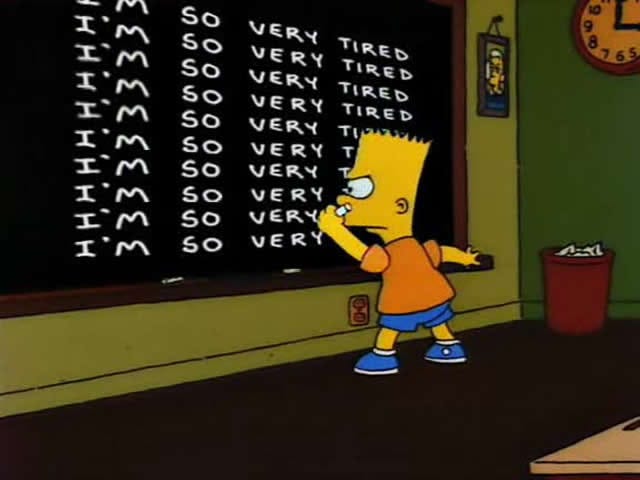This Week in Gossip #32
Corporations ruin it for everyone, FKA Twigs is ready to take Shia LaBeouf to court, the unions get a victory, and Tom Hanks’ waxy de-aged face haunts us all.
Farewell, MTV News: Corporate Greed Erases a Major Part of Pop Culture History From the Internet (and Then Some)
More than two decades’ worth of content published on MTVNews.com is no longer available. After Paramount Global shuttered the site last year, they seem to have deleted their entire history. Content on its sister site, CMT.com, seems to have met a similiar fate. Many years of crucial music journalism and some of the most pioneering cultural criticism of our time is gone. As Variety notes, "Perhaps the most significant loss is MTV News’ vast hip-hop-related archives, particularly its weekly “Mixtape Monday” column, which ran for nearly a decade in the 2000s and 2010s and featured interviews, reviews and more with many artists, producers and others early in their careers." Many former MTV News writers took to Twitter to share their disgust with the decision. So much research, so much work that was crucial to our understanding and appreciation of music... it's gone.
And as I was writing this story up, it was noted that the legendary back-catalogue of The Daily Show, one of the jewels in Paramount’s cultural crown, has also been deleted. Why? How? Jesus…
I hate how wearily inevitable stuff like this is in our business. I’ve lost count of the number of websites that were plundered for parts by tech bro CEOs then reduced to clickbait rubble once they sacked all the writers who gave them their distinct identities and replaced them with AI. I know how little, in the grand scheme of corporate growth, it costs to keep a dead website going, if only for the extra money it brings in from ad clicks, so to scrap decades’ of work for the sake of a few cents feels especially callous. It only reinforces my belief that the powers-that-be are actively anti-culture.
And for those keeping track, the co-CEOs of Paramount Global have ensured exceedingly good severance deals for themselves amid the company's shaky future and possible sale plans. As detailed by The Hollywood Reporter, "all three men also received a cash bonus under the company’s short-term incentive plan of $2,750,000, which will be prorated to their service as co-CEOs."
I don’t know a single person in my profession who hasn’t lost some work to the terrors of deletion. Some pieces from the earliest period of my career no longer exist except in Word documents I keep in a dusty drive. The Wayback Machine can only do so much, particularly as the Internet Archive faces a tough courtroom battle from one of the major literary publishers in the business. There’s a moment in The Social Network where Rooney Mara’s character says that the internet is written in ink, not pencil. That’s no longer true, if it ever was. The internet is written in code and it only takes one click to remove it from existence.
It’s not just articles either. The corporate interests that dominate entertainment and art have never been shy about degrading or outright removing crucial parts of our history from the record. The vast majority of silent films from Hollywood’s early days were destroyed by their own studios because they weren’t seen as valuable enough to archive. Many iconic authors have beloved novels out of print that are only available through second-hand means. Video games are notoriously poorly preserved by massive companies like Nintendo, who actively punish fans who try to keep them available and playable. The promised democratization of art through the always-online capabilities of the internet simply never came to be.
How do we combat this? Is it even possible? For us lowly freelancers, backing up everything on platforms like Wayback and Authory is a necessity now, but as for the wider issue of keeping great art and criticism in independent hands, that’s a tougher issue. We’re so lucky to see sites like The AV Club getting back on their feet under new ownership (disclaimer: I now write freelance stuff for the site.) It takes a lot of work, a lot of money, and a core audience of readers willing to commit. That and a zero-tolerance approach to AI. F*ck it all.
IATSE Talks With Studios Highlight Crew Deaths and Continuing Issues of On-Set Safety
IATSE, the International Alliance of Theatrical Stage Employees is one of the biggest labour unions in the entertainment industry (and possibly even the entirety of North America.) It represents 168,000 technicians, artisans, and craftspeople who work in film, TV, theatre, and trade shows. In 2021, they ratified their three-year contract and avoided a strike, the yes/no split in favour of it was very close. They got back around the negotiations table to sort out the next contract. After the summer of strike that was 2023, you'd think the people in charge would be eager to appease hundreds of thousands of works, right? Ha. There's a reason we need unions, my friends.
But a deal was made, and IATSE announced this week that they’d reached a new three-year tentative agreement to avert hot strike summer 2024. To quote the Guardian, "If approved, the deal will bring pay hikes, artificial intelligence protections and streaming residuals for union members, including costume designers, hair stylists, make-up artists, art directors, set painters, camera technicians and editors. Union members will vote on whether or not to ratify the agreement."
One of the lesser-discussed aspects of working in the entertainment industry is that it's often f*cking dangerous, and it's usually those below the line blue-collar workers who suffer. As Deadline wrote this week, concern over safety is a crucial focus of IATSE's negotiations. In December, a woman died in a car accident after a lengthy overnight shoot on an upcoming Peacock series. In February, a crew member on the set of Marvel’s Wonder Man died after falling from a catwalk. In April, several crew members were injured while working on an Eddie Murphy Amazon movie after a stunt went wrong. In May, a grip died in a car accident after working a 14-hour day.
That last detail is of particular note. When IATSE last had contract talks, many workers shared their stories of how being overworked without appropriate compensation or safety measures led to things like falling asleep at the wheel when driving home from a 14 or 16 hour shoot. Katherine Heigl, a longtime supporter of IATSE, wrote in 2021 that "the number of accidents that happen on set due to exhaustion are shocking. Illness both mental and physical is off the charts. There is nothing glamorous or sexy about working past the point of exhaustion." That it’s so commonplace for workers to be injured or killed from extreme fatigue should be the millstone that hangs forever around the entire industry’s neck. As noted in the Deadline piece, these long shoots, lack of rest, and growing physical and mental health repercussions are the exception, not the rule in 2024.
During the hot strike summer, it wasn’t uncommon to see smarmy dissenters declare that actors and writers were spoiled cry-babies who should suck it up and go to work because it’s a privilege to be part of the entertainment industry. It’s not a “real job”, apparently. Never mind that the vast majority of workers in the WGA and SAG-AFTRA weren’t making anything close to the annual minimum wage. With IATSE, the full picture of the business is on show. Being a grip, a driver, a stagehand, a costumer, and so on is not glamorous but they’re crucial parts of making every film, series, musical, and so on you’ve ever seen. They’re not rich. They’re not in it for the glory. This is a job, and even if making movies cured cancer, that wouldn’t be justification for overworking everyone to the point that they crash their cars trying to get home in the early morning.
Hollywood is a workplace and it deserves the compensation, safety measures, and worker care that every field should have. And, as the Deadline piece notes, studios seem all too happy to budget around the paltry financial penalties they'd incur for violating crews’ contracted rest periods rather than adhere to them. There's no substantial punishment for those who break the rules. “We see that some of these companies or productions will continue to film excessive hours that are way over the top … and they don’t even blink at the fact that it’s costing them more money, so obviously they can afford it,” Teamsters chief negotiator Lindsay Dougherty told the website.
Support your local union, kids!
Marvel is Going Back to Hall H: Is This Good or Bad?
Deadline reports that Marvel Studios is making a grand return to Hall H, the biggest and showiest platform at San Diego Comic Con. Traditionally, the penultimate day of SDCC is dedicated to Marvel's presentation of upcoming films and a chance for fans to see the cast in the flesh, at least from a distance. Marvel never stopped being present at SDCC, even in strike years, but it pulled back from its victory lap-style shows where Josh Brolin would turn up in the infinity gauntlet and just wave like an arriving royal. Now, they seem ready to return to the old days.
Keep reading with a 7-day free trial
Subscribe to Gossip Reading Club to keep reading this post and get 7 days of free access to the full post archives.






